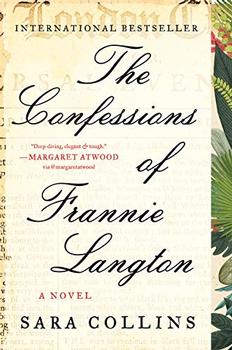Book Club Discussion Questions
In a book club? Subscribe to our Book Club Newsletter and get our best book club books of 2025!
For supplemental discussion material see our Beyond the Book article, 19th Century Literary Companions and our BookBrowse Review of The Confessions of Frannie Langton.
Please be aware that this discussion guide will contain spoilers!
- Why is Frannie taught to read? What makes reading such a powerful skill that it was denied
to slaves? Why does Phibbah, a slave like Frannie, plead with Miss-bella not to teach
Frannie? How does the ability to read change her?
- Consider all the literary allusions throughout the book. What does each work bring to the
novel? In what ways might Voltaire's Candide or Mary Shelley's Frankenstein be particularly
relevant? Why do you think Moll Flanders is so important to Frannie?
- How does Frannie navigate and survive the brutal, oppressive ignorance of slavery? What
are the particularly important decisions she is forced to make? How does she bear the
extreme anger and grief that result from such oppression?
- What explains the base and sadistic drive and methods of John Langton? What ethical limits
to scientific inquiry does he ignore?
- Despite mistreatment and manipulation, Frannie admits that "there was love as well as hate"
for Miss-bella. What do you think explains this complex emotional response?
- When she arrives in London, ostensibly no longer a slave, Frannie admits that "freedom was
[her] biggest fear." Why might such desired liberty feel like such a threat to her?
- In what ways does Marguerite Benham flout the social and political laws of the time? What
freedoms and forces allow her such disregard? What are the limits to her independence?
What's important about her belief in Locke's tabula rasa?
- What is the nature of the complicated relationship between Frannie and Marguerite
Benham? How do social mores influence their emotional experience? In what ways does
their time "in a room of their own" explore or fulfill the empowered freedoms argued for by
Virginia Woolf? In what ways is Marguerite's treatment of Frannie, as Sal protectively
argues, similar to how Benham treats the residents of the School-house?
- Consider the complex identity of Olaudah Cambridge. What various roles has he had to play
in his life? Why was he put out of the Benham home? In what ways is Laddie Lightning an
accurate expression of who he is or not? How is he successfully able to express his anger to
white Londoners without endangering his life?
- Consider the painting of the woman in red that hangs in Marguerite's room. What does it
suggest? What might it mean for either Marguerite or Frannie to "become your own
woman"?
- Frannie's understandable and justified anger comes like "a drumbeat…steady as rain on
glass" or at times "like a hot spurt of blood from a wound." What's valuable about her anger?
How is it best expressed or directed? Why is it sometimes directed at herself?
- George Benham argues to Frannie that "novels are a mere frippery" given "the weight of
suffering in the world." What is the role of the novel? What does it offer that science does
not?
- As Frannie so profoundly asks, "What would you want to be remembered for? If you had
one last page and one last hour, what would you write?"
Unless otherwise stated, this discussion guide is reprinted with the permission of Harper Perennial.
Any page references refer to a USA edition of the book, usually the trade paperback version, and may vary in other editions.
